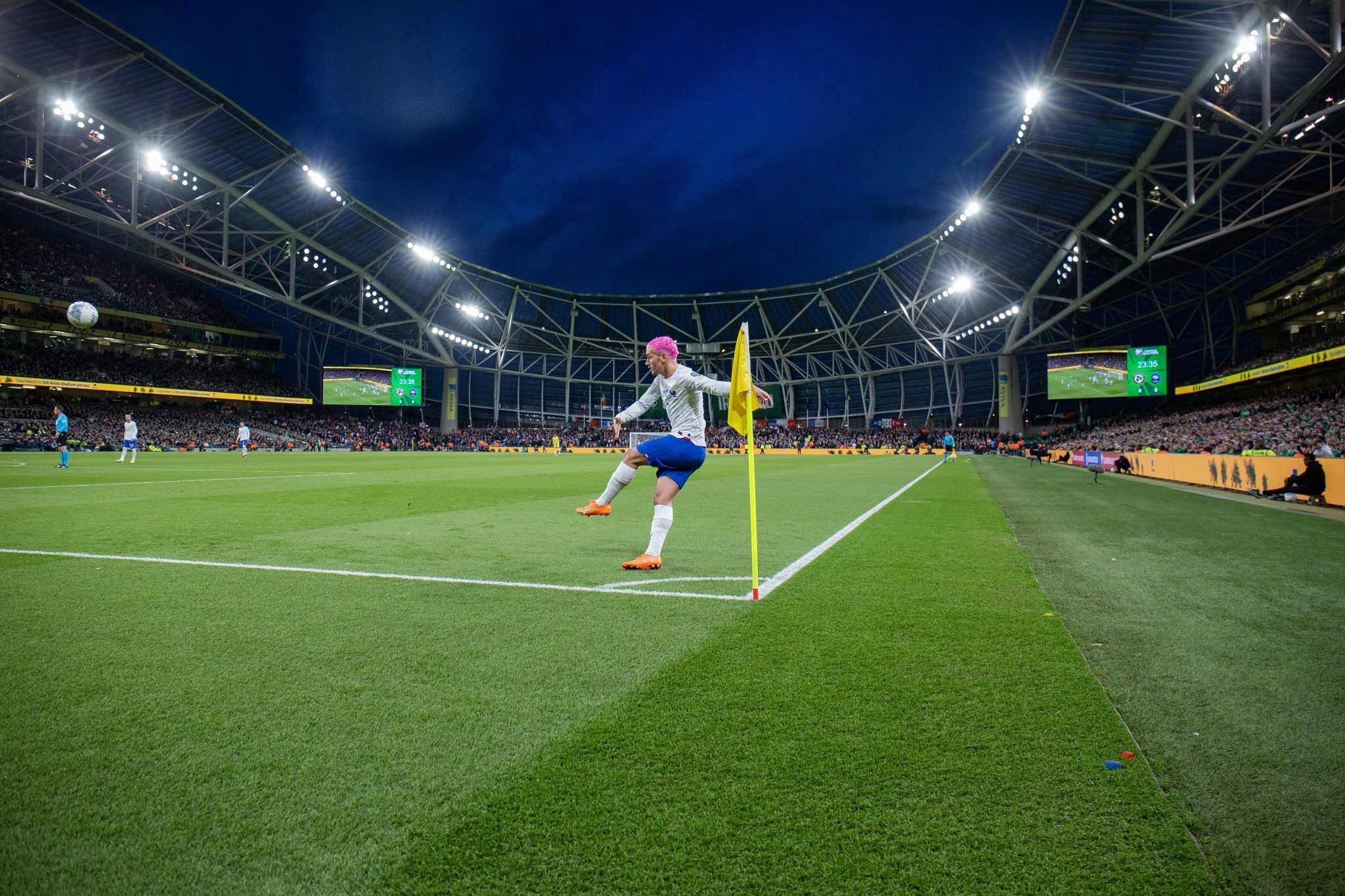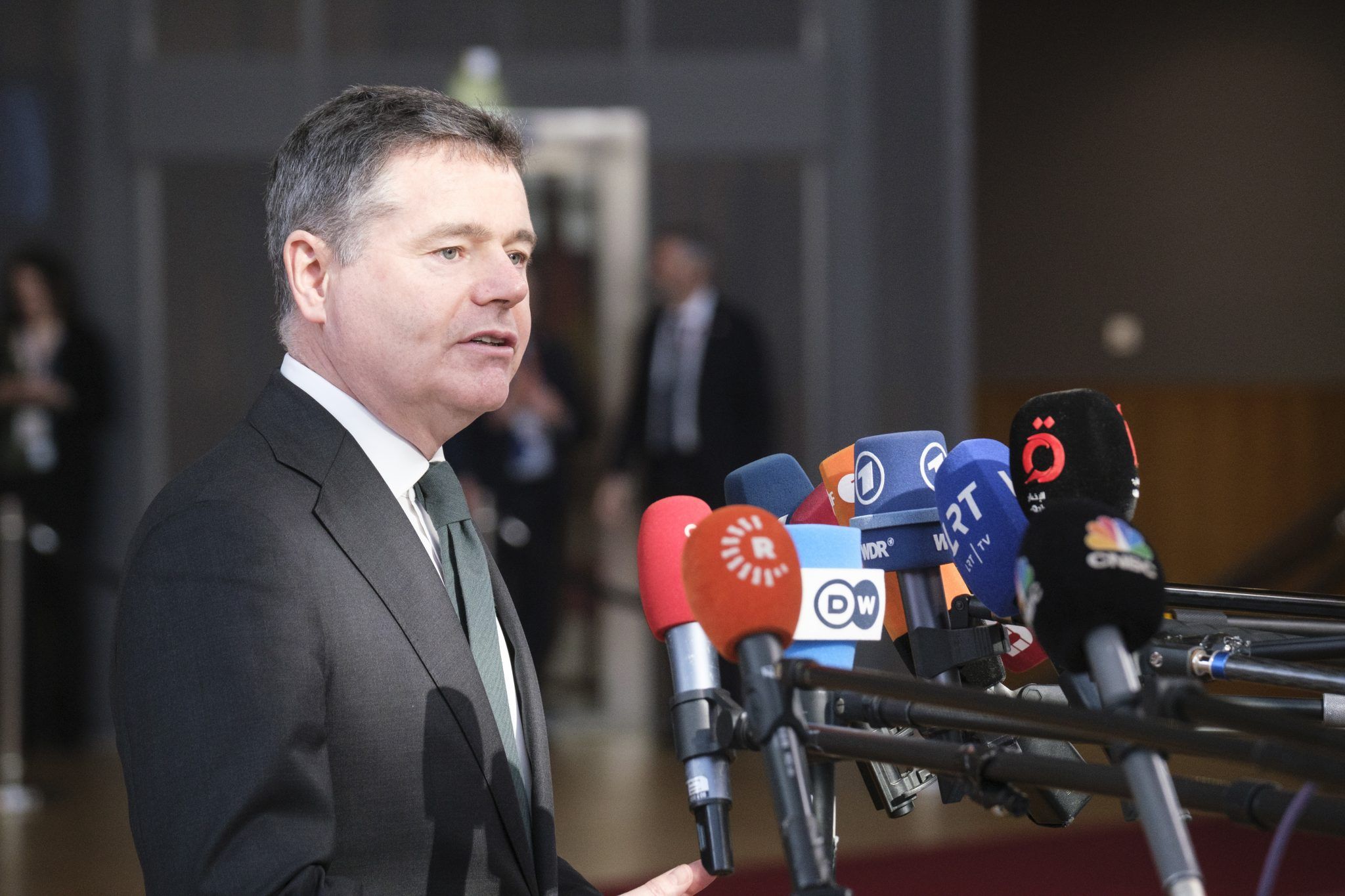
News

Share
15th April 2023
11:20am BST

 Dublin's Aviva Stadium has been put forward to host 6 games at Euro 2028. (Credit: Getty Images)[/caption]
Initially met with widespread enthusiasm given the news that Ireland's hosting of group games and potentially knock-out ties at Dublin's Aviva Stadium could generate up to €240 million for the economy, this inceptive fervour has now been replaced by hushed division.
This discontent emanates from the news that the Department of Public Expenditure and the Department of Tourism are at odds over the financial estimates which were brought before government to help incentivise their support for the bid.
In a report by The Irish Times, it has been reported that Minister Donohoe has raised concerns with Minister Martin over these estimates, and questioned whether the financial impact of hosting the tournament had been suitably accounted.
[caption id="attachment_772386" align="alignnone" width="640"]
Dublin's Aviva Stadium has been put forward to host 6 games at Euro 2028. (Credit: Getty Images)[/caption]
Initially met with widespread enthusiasm given the news that Ireland's hosting of group games and potentially knock-out ties at Dublin's Aviva Stadium could generate up to €240 million for the economy, this inceptive fervour has now been replaced by hushed division.
This discontent emanates from the news that the Department of Public Expenditure and the Department of Tourism are at odds over the financial estimates which were brought before government to help incentivise their support for the bid.
In a report by The Irish Times, it has been reported that Minister Donohoe has raised concerns with Minister Martin over these estimates, and questioned whether the financial impact of hosting the tournament had been suitably accounted.
[caption id="attachment_772386" align="alignnone" width="640"] Minister for Public Expenditure Paschal Donohoe holds reservations over the financial estimates underpinning Ireland's bid. (Credit: Getty Images)[/caption]
Documents drawn up for Cabinet ministers show that Mr. Donohoe has told his Department of Public Expenditure colleagues that he "is not absolutely persuaded that the case for potential economic benefits for Ireland is as robust as the Department of Tourism suggests".
When making the case to Cabinet to back the FAI's intention to join the home nation's Euro 2028 bid, Ms. Martin sighted a cost of just €65 million to the government, but that the gross added value to the economy could be in the region of €189 million, with legacy socioeconomic benefits further raising that figure to €241 million.
Minister Donohoe's main issue with Ms. Martin's estimates is the assumption that there would be zero "displacement" effect on the capital's tourism trade due to the hosting of games, which the Fine Gael TD sees as "overly optimistic".
[caption id="attachment_772387" align="alignnone" width="640"]
Minister for Public Expenditure Paschal Donohoe holds reservations over the financial estimates underpinning Ireland's bid. (Credit: Getty Images)[/caption]
Documents drawn up for Cabinet ministers show that Mr. Donohoe has told his Department of Public Expenditure colleagues that he "is not absolutely persuaded that the case for potential economic benefits for Ireland is as robust as the Department of Tourism suggests".
When making the case to Cabinet to back the FAI's intention to join the home nation's Euro 2028 bid, Ms. Martin sighted a cost of just €65 million to the government, but that the gross added value to the economy could be in the region of €189 million, with legacy socioeconomic benefits further raising that figure to €241 million.
Minister Donohoe's main issue with Ms. Martin's estimates is the assumption that there would be zero "displacement" effect on the capital's tourism trade due to the hosting of games, which the Fine Gael TD sees as "overly optimistic".
[caption id="attachment_772387" align="alignnone" width="640"] Croke Park had initially been included in plans for the bid, but was removed due to its high security costs. (Credit: Sportsfile)[/caption]
"My Department's view is that displacement is highly unlikely to be zero", Minister Donohoe said due to the tournament taking place at the traditional height of the summer tourism trade.
Croke Park had initially been included in plans for the bid, but was removed due to its high security costs. (Credit: Sportsfile)[/caption]
"My Department's view is that displacement is highly unlikely to be zero", Minister Donohoe said due to the tournament taking place at the traditional height of the summer tourism trade.
"There is a plausible scenario whereby the investment that will go into this project... may not come close to realising its estimated gross added value".Concerns were also raised by Mr. Donohoe over the refurbishment of Belfast's Casement Park, which was included as a candidate stadium over Croke Park. With the cost of repurposing the stadium expected to require significant capital investment, the Minister aired concerns over the possibility of the UK government seeking to fund the rebuild through the Shared Island Scheme, which could result in a sizeable outlay for the Exchequer. The government believes the benefits of this bid to be more than just economic though, hoping that it will offer a timely boost to Irish-UK relations in the post-Brexit era. A final decision on who has secured the hosting rights to Euro 2028 is expected from UEFA this autumn, with Turkey the only other candidate in the running. Related Articles:
Explore more on these topics: